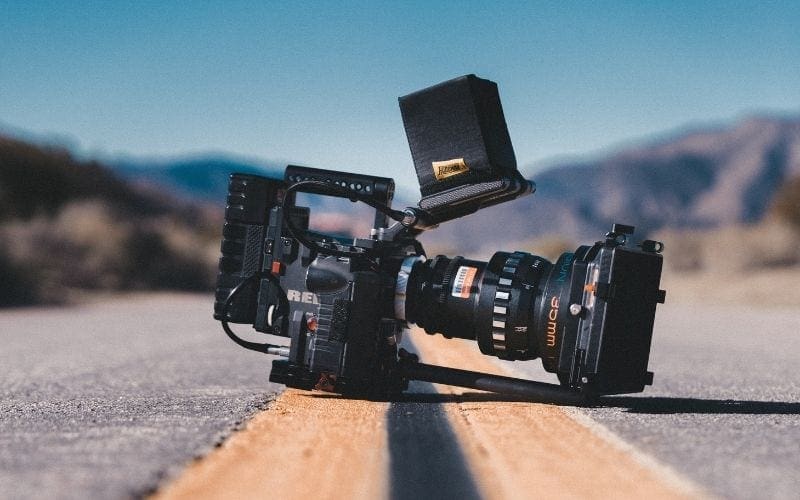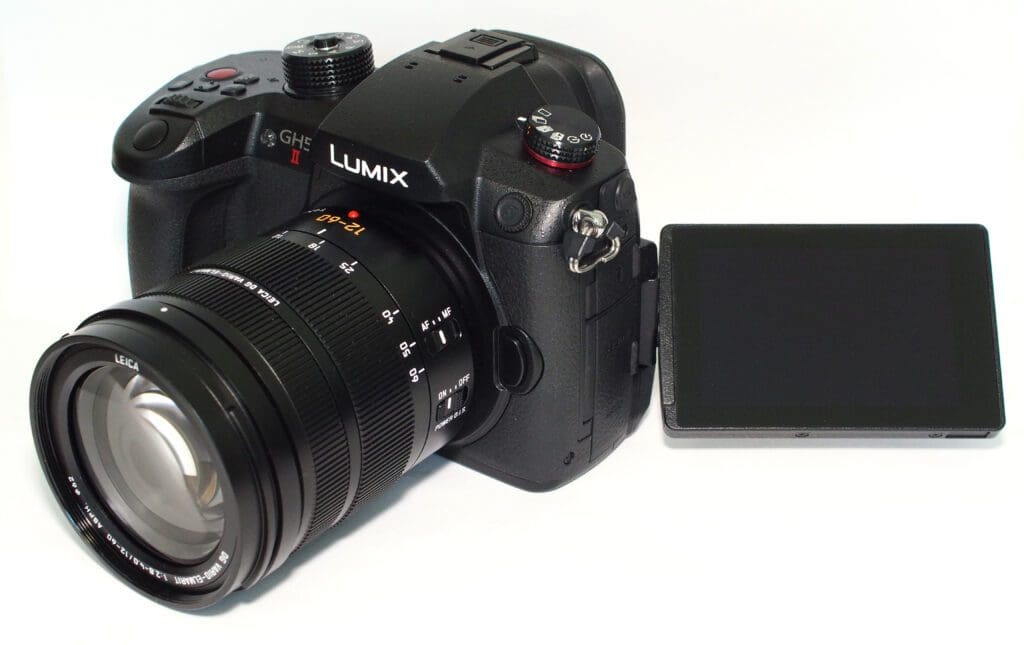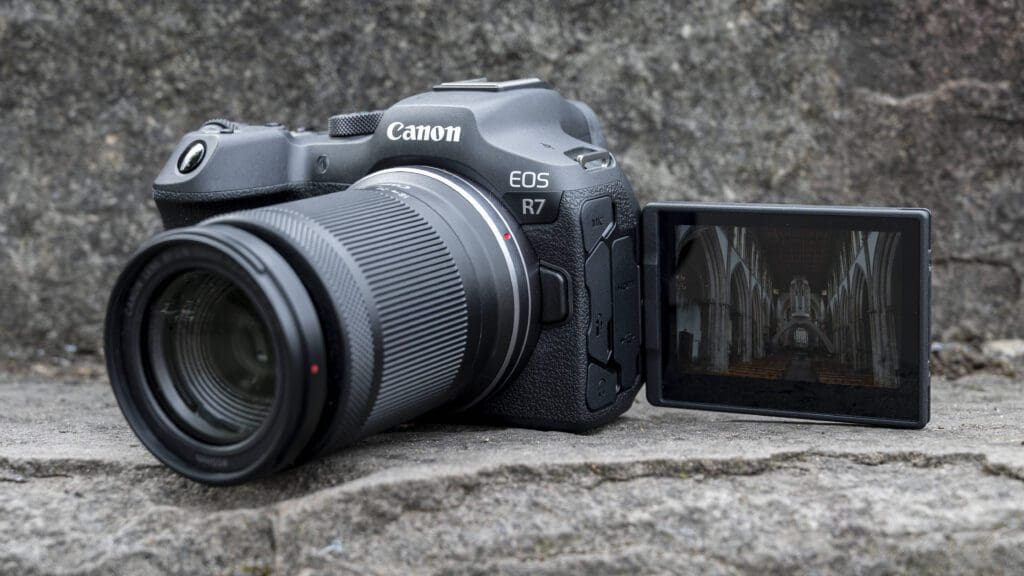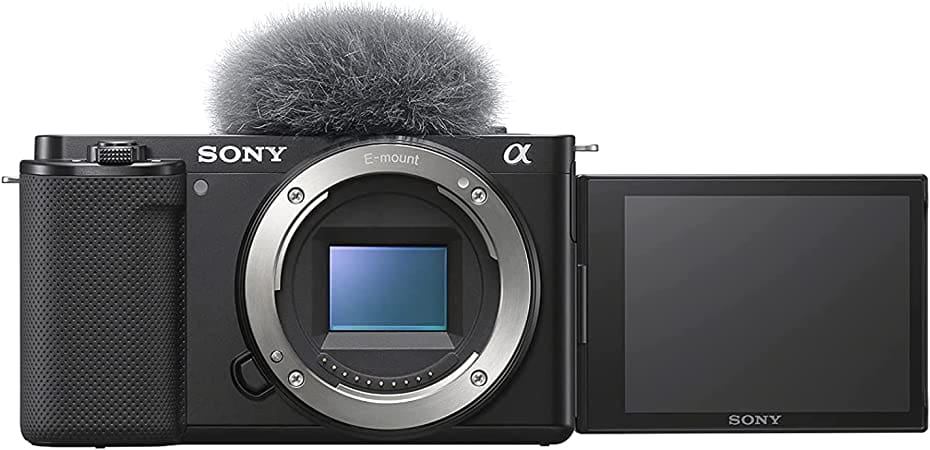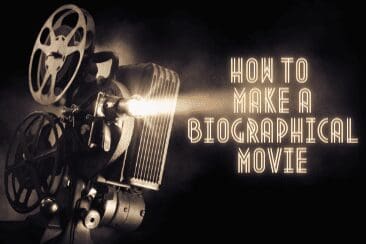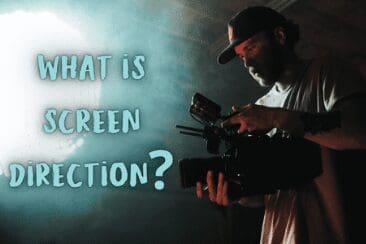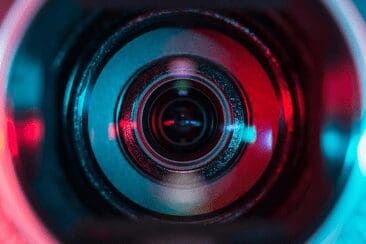Aspiring filmmakers in the last couple of years were incredibly lucky to live in the age of affordable and great-quality filmmaking cameras. Affordable cameras are all around, but making a choice in purchasing is not easy. Some of the cheapest 4K filmmaking cameras could lack stabilisation, and while achieving 4K quality, you could become limited with movement and positions. The best DSLR for filmmaking is still the Canon 5D series, but is it the best price-wise? So, how do you decide on the best filmmaking camera on a budget? In this article, we will evaluate and review the best cameras for filmmaking for you!
What Type Of Camera Do You Need?
The first thing to do is think about what you want for your films before you buy the best video camera for filmmaking. Do you want to apply to film festivals? Are you looking for distribution? Also, do you want to have your own channel and promote it yourself?
Next, you should consider what aesthetics you need, thinking about whether you want low lighting or high key. Do you film outdoors or indoors?
There are various types of cameras, such as DSLRs, camcorders, point and shoot which are good for filmmaking. Each has a different set of qualities and works better for different people. Eventually, you have to make a cut. If you are on a budget, you will need to calculate and make decisions about investing and renting. For example, Sony mirrorless series are great for low-light environments, so if you invest in this type of camera, you can save on additional lighting. You can also head here to check out some great cameras for action shootings and music videos.
Best Camera For Beginner Filmmakers
Now that you have decided to follow your passion and are learning how to become a director, director of photography, producer, light or sound designer, it is time to think about your needs as a future independent filmmaker. In your film shooting practices, you will need a lightweight and easy-to-use camera. It is like learning to drive a car. You are learning the basics but you still want to feel safe and comfortable. Here are two cameras that offer great image quality for a low price.
Blackmagic Pocket Cinema Camera 4K
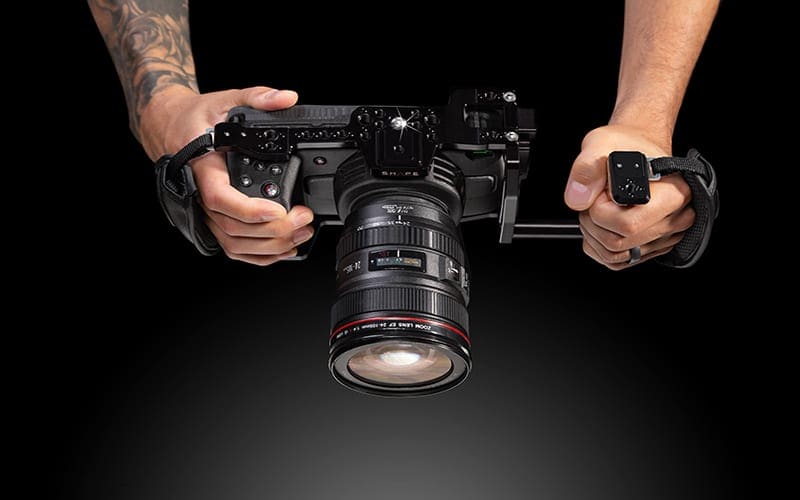
Price: $1,295
Pros:
- 4K
- Video camera
- Mountable
- Price
- Microphone quality
- Small
Cons:
- Battery Life
- No stabilisation
This is a 4K camera (4096 x 2160) with a whole image sensor. It is affordable, durable and light. Another benefit is its ISO capabilities, starting with 400 and up to 3.200, which makes it perfect for low lighting conditions. It is a perfect camera for filmmaking!
Its battery life is limited to 60 minutes, but the battery type is standard and available at any manufacturer’s, so purchasing additional batteries is pretty cheap. The power comes from an LP-E6 battery – the same type used in cameras like the Canon The Pocket Cinema Camera.
The camera is mountable for a variety of lenses, and another great feature is the number of available ports for additional gear, such as mics, monitors, and other gear. The Pocket Cinema 4K comes with a free copy of Davinci Resolve, so you don’t even need to invest in any pricey software to get cracking with your 4K edits!
As you can see, purchasing this camera will save additional costs for editing, lighting and sound and will enhance image quality to 4K resolution. This is perfect for presenting your works at student film festivals.
Fujifilm X-T4

Price: $1,699
Pros:
- In-body stabilisation
- Classic controls
- 4K video
- Lightweight
- ISO range: 160 to 12,800 (exp 80-51,200)
Cons:
- Price
This is an overall great camera from the mirrorless series and is ideal for low light environments with built-in stabilisation and is mountable. Improvements on this camera include a new ETERNA Bleach Bypass cinematic Film Simulation mode, a new autofocus algorithm for better face and eye detection and some revised external controls, notably a new Still/Video lever on the top of the camera. This makes it perfect for saving additional spending on equipment.
The dual card slots sit behind a separate door to the battery compartment. The battery is physically larger than the NP-W126S cell used in the X-T3 and other X-series cameras. Unfortunately, they are not interchangeable, but the longer life of the new NP-W235 battery is important, so it was a change worth making.
Hopefully, one of these cameras will help boost your confidence, save some money and help make some masterpieces! The next step is choosing mountable lenses, you can read about the best budget-friendly choices here.
Best Cameras For Filmmaking: Point & Shoot Film Camera
Before the pandemic, I had an opportunity to travel to Antarctica for work. Here I was on the decks of a big ship surrounded by people from all around the world and all kinds of cameras. I started looking around and noticed some people freely moving and enjoying their mobility and here I was stuck with all these lenses and DSLRs. My attention was on this man holding a Canon small camera with a huge zoom.
He looked at me and was very interested in my camera, but I think I was more interested in his. He said he gets all the footage he needs without heavy lifting. This impression stayed with me and when I returned home I wanted to see what it was all about. Is it possible that point-and-shoot cameras can be used in filmmaking? Let’s take a look at my top pick for this category:
Panasonic Lumix LX10
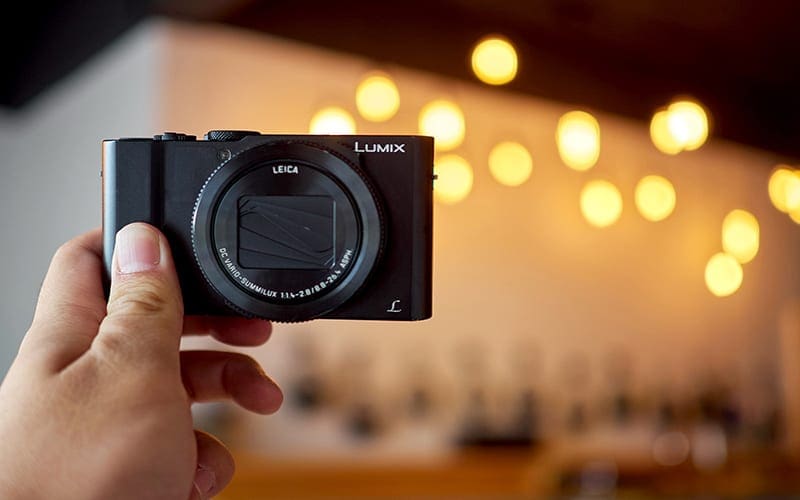
Price: $797
Pros:
- 4K video
- Small
- Exposure control
- 20.1 Mpx
- Built-in editor
- Price
Cons:
- Not mountable
- No stabilisation
This is a pocket-size 4K video recording camera with exposure control and accurate focus, which are features usually found in DSLR filmmaking cameras. The megapixel count is 20.1 and the DFD feature calculates focus distance to avoid blur and out-of-focus images. Another addition is a built-in editor that allows you to refocus your photos or videos after they’ve been taken, so you never have to worry about sacrificing creativity. This is the best budget camera for filmmaking.
Considering these features when choosing the best camera for filmmaking, this could be a great option if your film narrative takes you on trips and if you are limited by the amount of equipment. This is also a great camera for practice in regard to fast reactions, such as whales jumping out of the water, which I missed a couple of times. This is also a great camera to get ready for the film shoot, as you could use a camera like this to decide the positions of objects in the scene and measure focal distance, as well as decide on refocusing while shooting.
Best Cameras For Filmmaking: Camcorders
I started wondering about not-so-popular but very good film cameras, aka Camcorders. Why aren’t those at the centre of attention? Could it be the high price and the size of these types of cameras?
Things are changing here as well, and there are some great camcorders for very affordable prices and fantastic enhancement in image quality. Here is my personal favourite:
Canon Legria HF G60 – best camera for filmmaking

Price: $1699
Pros:
- 4K
- Image sensor: Dual-pixel CMOS 13.4MP
- Total pixels: 3.09MP
- Dual card slot
Cons:
- Dimensions: 125 x 91 x 265mm
- Heavy
This is a semi-professional 4K video camera, which is one of the best digital camera for filmmaking. It operates with a 15x zoom lens with five-axis image stabilisation, and a flip-out 3 touchscreen (as well as a tiltable eye level finder). Another useful feature is that there are two SD card slots.
The 4K UHD quality has a focal length ranging between 25.5mm and 382.5mm. That happens to be the equivalent of 35mm film, making your shots highly standardised for import to editing programs. Secondly, an ND filter allows users to choose between ND settings at 1/4, 1/16, and 1/64. You can swap the ND filter on and off as needed, and adjust the density of the filter using external buttons located below the filter activation switch. Price-wise, it’s actually pretty close to some of the DSLR options, too!
8K Resolution
While there were still ongoing decisions about the best DSLR, 4K cameras and mirrorless cameras, we entered the 8K world. The main question is, why aren’t the prices of DSLRs dropping? So, what is 8K resolution?
8K is four times better than 4K, and 16 times better than 1080p / FullHD, but a better way for photographers and videographers to understand 8K is in terms of megapixels. While a 4K image (which is defined as 3840 x 2160 pixels) equates to an 8.29-megapixel image, 8K creates a 33.17-megapixel image. NHK insists that 22.2-channel surround sound is part of the 8K format, too, though none of the early 8K products includes anything like that. 8K is about pixel density. For video, it’s quite a jump from a viewer’s perspective to get the same pixel density as a 32-inch FullHD TV you would need a 120-inch 8K TV or PC monitor.
Are We There Yet?
Yes and no. Considering that most monitors and TVs are not even 4K yet, this spread seems like it has a long way to go. Most people argue that we don’t need 8K, but professionals and big production companies have been using 8K for some time now. Of course, it is about the quality and size of the footage. Big screens in world movie theatres can definitely take it, and most high-end TV stations are slowly moving to 8K.
The main question is how will we edit 8K footage. Big machines cost big bucks, and we are definitely not there yet. However, some cameras dropped their prices and are selling well. The assumption is that while recording in 8K, even when you drop your resolution, you are able to keep the great density of pixels and still be able to edit the video. Let’s look at some 8K camera options!
Canon EOS R5 8k Camera – best camera for filmmaking

Price: $3,899
Pros:
- Full frame
- 8K video
- 45mpx
- Dual memory card slot
Cons:
- Price
This camera has an in-built steady/gimbal mechanism, which is a real treat for filmmaking, as it removes the need for any additional type of Steadycam/Gimbal/ device. It is mirrorless, 8K and it is compact enough. Canon didn’t disappoint in sensor upgrades either, and creators are pointing out that you don’t have to export in 8K to get the highest possible image quality.
For those who can afford this camera for filmmaking, there are many advantages. Plus, if they are willing to rent it to their fellow filmmakers, soon enough we will have a million-dollar image quality in independent film. There has been a long journey from DSLR to 8K. Opinions vary, but the fact is that 8K is knocking on our doors and we better prepare! DSLRs still hold the price, and surprisingly, upgrades in mirrorless technology and high resolution didn’t knock them down.
The main reason is that our computers and screens are not ready yet. We just got them in HD, then 4K, and now we again need to upgrade to 8K. Until we stop balancing camera upgrades with our screens, 8K will not sell well and DSLR prices won’t drop.
Canon EOS R6 Mark II – best camera for filmmaking
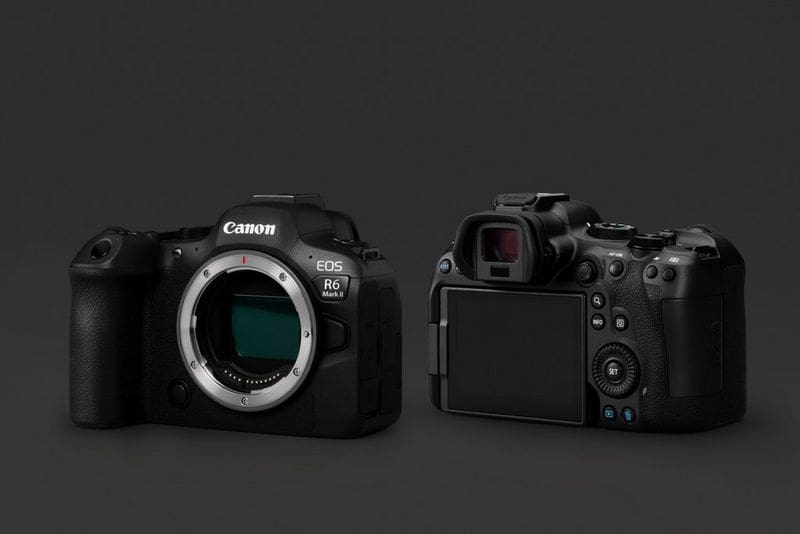
The Canon EOS R6 Mark II is a top-performing hybrid camera, ideal for video production and creators. It offers significant upgrades from its predecessor, including the removal of the 30-minute recording limit and improved heat management. It also provides 4k up to 60 fps with no crop, making it a rare option at its price point. The camera’s internal recording capabilities are impressive, with 10-bit 4:2:2 recording and oversampled 4k video quality. Additionally, it features effective in-body image stabilization for smoother handheld footage. Overall, it’s an excellent choice for enthusiasts looking to improve their video skills or break into filmmaking.
Panasonic LUMIX GH5 II
The Panasonic LUMIX GH5 II is a great option for videographers, offering excellent video quality, anamorphic modes, and Log profiles. However, it uses a Micro Four Thirds sensor with a 2x crop factor, which may affect depth of field and low-light capability. If you prefer a full-frame camera, the Panasonic LUMIX DC-S5 is a good choice, though it has fewer recording formats and bigger, more expensive lenses. The GH5 II has been replaced by the GH6, but it remains one of the best videography cameras at its price point.
Canon EOS R7 – best camera for filmmaking
The Canon EOS R7 is a great mid-range camera for filmmaking, with similar features to the Canon EOS R6 Mark II but a smaller APS-C sensor. It has internal 10-bit 4k recording up to 60 fps, excellent battery life and heat management, and in-body image stabilization for smoother handheld recording. While it can’t capture as much dynamic range as a full-frame camera and doesn’t support as many resolution options as the Panasonic LUMIX GH5 II, it’s a great value for those who don’t need full-frame quality and low-light performance.
Sony ZV-E10
The Sony ZV-E10 is a budget-friendly camera with features suitable for videographers and filmmakers. It has a fully articulated screen, portable size, and good connectivity options. This camera lacks a viewfinder and IBIS, but can be paired with optically stabilized lenses or a gimbal. It offers unlimited recording time, impressive battery life, and no overheating issues. It offers 4k up to 30 fps and 1080p up to 120 fps for slow-motion recording but misses out on 10-bit internal recording and 60 fps 4k video. It’s a great option for those on a budget.
Best Cameras For Filmmaking: Final Thoughts
I hope you enjoy my review of the best cameras for filmmaking, and that you have a better idea of what you may be looking for. It may take some trial and error to find the perfect camera for your filmmaking, so get out there and do some research, and practice where you can. It all depends on your needs, what you want to film, and what elements you rely on the most. To sharpen your knowledge further, check out our articles on filmmaking books and how to finance movies for independent filmmakers. Happy filmmaking!





